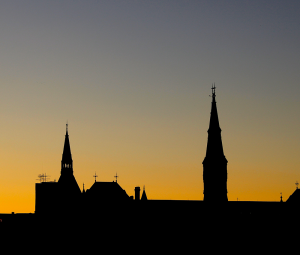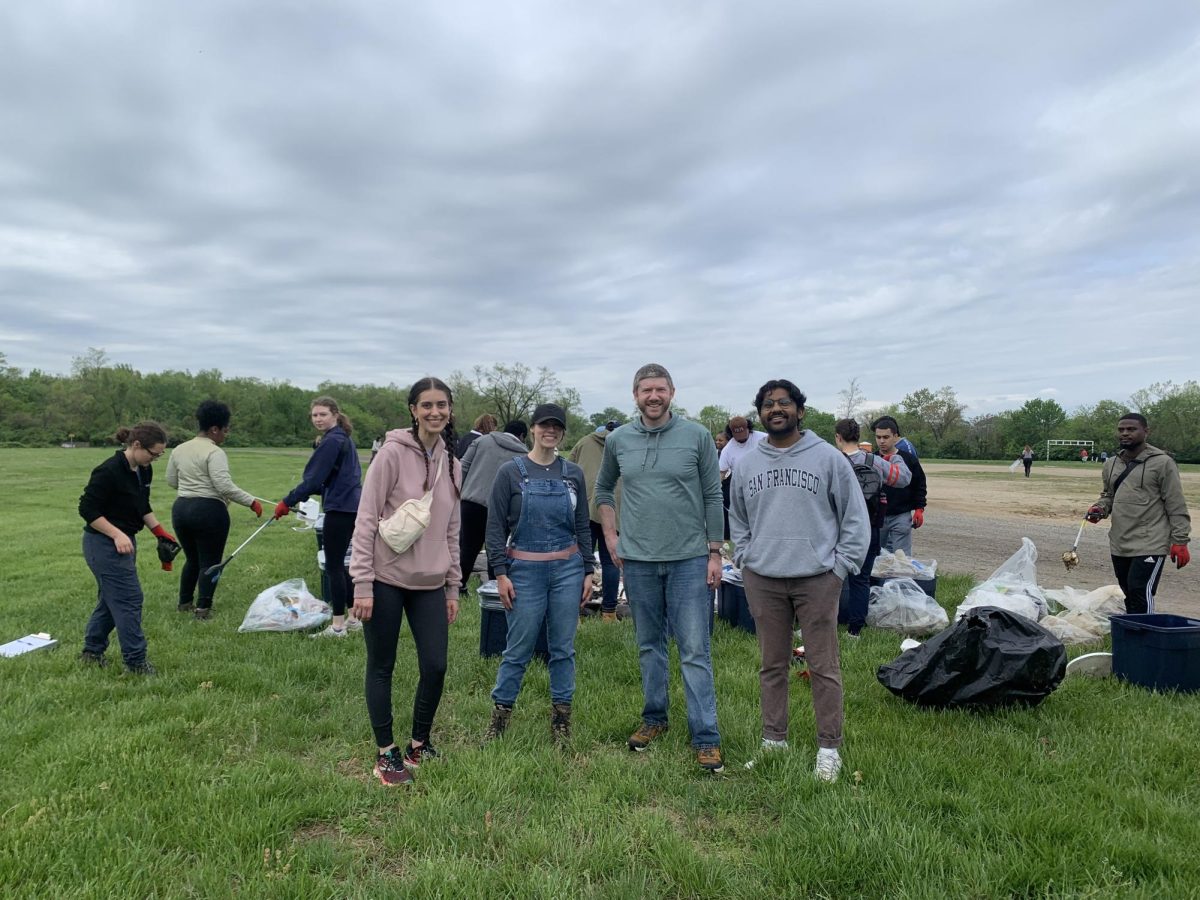
The federal charter of Georgetown University was signed into law by President James Madison on March 1, 1815, formally recognizing the university and authorizing it to grant degrees.
From the White House to the Capitol, politicians took to YouTube to offer Georgetown words of congratulations on the 200th anniversary of its federal charter.
The charter, signed into law by President James Madison on March 1, 1815, granted Georgetown federal government recognition and the authority to give academic degrees, which it previously lacked.
University President John J. DeGioia sent out a congratulatory email to the Georgetown commuity to mark the occasion, writing that the celebration was special because of all the people who have been a part of Georgetown over its 225-year history.
“A defining strength of Georgetown has always been and still remains our community — our students, faculty, staff, alumni and friends,” DeGioia wrote in the email. “As we continue forth into the next 200 years, I wish to thank you for your innumerable contributions both on the Hilltop and beyond.”
Professor Emeritus Robert Emmett Curran, author of “A History of Georgetown University,” said that Georgetown received its charter in a unique way. While most other universities date their founding to the year they received their charter, Georgetown received its charter 25 years after its founding in 1789.
“[Georgetown] bases its start on when the first building went up,” Curran said. “Georgetown is the only institution I can think of who gets its charter 25 years after its own beginning.”
Federal charters are important because without them, universities cannot grant degrees to their graduates, which for a time made Georgetown an oddity among peer institutions. Curran noted that at the time, founder John Carroll was extremely reluctant to get a federal charter because of the state interference that would follow in the university’s affairs.
“A charter was considered as something that was a public investment that the state had a great deal of authority over and need to control,” Curran said. “Any institution that had a charter very often found itself under state regulation and interference.”
Curran said that the way Catholics were discriminated against in early America contributed to Carroll’s hesitancy to apply for a federal charter. Carroll feared that the government would interfere in university affairs as a result of the charter, diluting Georgetown’s Catholic identity.
“[Catholics] couldn’t vote, they couldn’t hold arms, they couldn’t hold office, they couldn’t educate their children in a Catholic institution,” Curran said. “So that was the background that Carroll was looking at, where Catholics had historically been in a vulnerable position in American history.”
For its first 25 years, Georgetown had no contact with the federal government as a result of Carroll’s desires to avoid allowing the government to get involved in university affairs. It is unknown whether or not Carroll was involved in the decision to apply.
“Georgetown [was] the most private of private schools in the country,” Curran said. “It [had] no governmental connection.”
But by 1815, the notion of a charter had changed. The courts had ruled that just because the federal government granted charters to an organization did not mean that it could interfere in how that group was run.
“[Charters] had been judged to be a guarantee of independence,” Curran said. “The charter was now not something that inherently weakened an institution but was really a safeguard for its integrity.”
Georgetown President John Grassi, S.J., decided in 1815 that conditions had sufficiently improved to request a charter. He asked Georgetown’s first student, William Gaston, a member of the House of Representatives from North Carolina, to introduce and petition for Georgetown’s charter in Congress, which President James Madison signed into law on March 1.
“[Georgetown’s] the only institution of higher education whose first student was the person responsible for getting its charter,” Curran said. “It’s the first Catholic institution of higher education to get a charter.”
In addition to DeGioia’s congratulatory message, Georgetown received videos from prominent government officials and lawmakers on the 200th anniversary of the federal charter. President Barack Obama recorded a message in which he celebrated Georgetown graduates, who he said have made an extraordinary impact not only on the United States but also the world.
“Simply put, this country and this world benefit from you commitment to Jesuit principles, to being men and women for others,” Obama said. “Here’s to the next 200 years.”
Speaker of the House John Boehner (R-Oh.) applauded the ties between the federal government and Georgetown. He also spoke warmly of the 16 current members of the House of Representatives who are graduates of Georgetown.
“I have great affection for the value and purpose of a Jesuit education,” Boehner said. “It’s my privilege on behalf of the whole House to recognize this bicentennial and congratulate Georgetown on all of its accomplishments.”
Georgetown also received congratulatory remarks from House Minority Leader Nancy Pelosi (D-Calif.) and Senator Patrick Leahy (L ’64, D-Vt.).
Billy Rydzewski (COL ’15) said the amount of praise Georgetown had received from politicians like Obama and Boehner showed how influential Georgetown remains to this day.
“Georgetown is obviously a great institution,” Rydzewski said. “The fact that we’ve been around and established for that long is just great. … I think it’s definitely an accomplishment for us.”




















